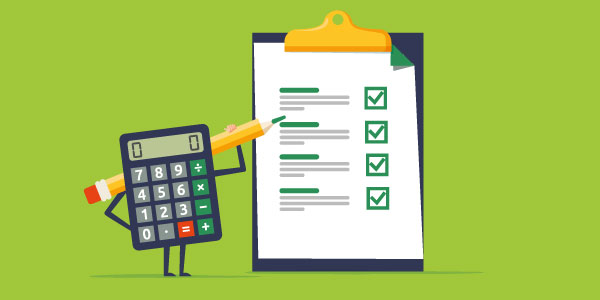
If you're a chartered or certified accountant, or a member of a professional accountancy association, you'll know that there are certain accountants' insurance requirements you must meet.
But that's only half the story. Did you also know that accountants' professional indemnity insurance requirements specify a minimum level of cover? Or a maximum excess? And that you need to keep your insurance going for a certain number of years?
In case you didn't, read on...
Chartered accountants' professional indemnity insurance wording
First of all, you need to make sure your policy is from a 'participating insurer'. If it is, you can rest assured it meets the minimum requirements of the ICAEW's approved wording. Check your insurer is on the list by clicking here. (If you bought your policy through us you can be sure it is.)
All institute-approved policy wordings are basically the same, regardless of which insurer underwrites it. The insurer must highlight any changes they've made to the wording with a 'difference in conditions' clause.
Professional indemnity insurance for chartered accountants' level of cover
The rules are quite simple: your level of cover has to be at least two and a half times your firm's gross fee income for the past financial year. The minimum level of cover is £250,000.
If your firm has a gross income of over £800,000, then you need to have at least £2m cover.
For probate firms, the minimum cover is £500,000 for any one claim. This means that your cover has to be enough to cover a claim of this amount.
For firms involved in insurance distribution activities, the structure changes slightly. They need to have the minimum level of cover prescribed to them by the FCA.
What about the excess?
A maximum excess is also important when it comes to accountants' professional indemnity insurance requirements. The 'excess' is the amount that you have to pay if you claim, while the 'aggregate excess' is the total of all claims paid in a policy year.
According to the ICAEW, the maximum aggregate excess for accountancy firms should not exceed £3,000 or 3% of a firm's gross fee income (whichever is higher).
Smaller accountancy firms, with a gross fee income of less than £100,000, are permitted an aggregate excess of no more than £3,000.
Anything else?
Yes. You need to make sure your policy has retroactive cover (insurance jargon for backdated cover) of at least six years. If your business hasn't been going for at least six years, cover should be backdated to when your practice started.
Finally, if and when you decide to call it a day, accountants' professional indemnity insurance requirements mean you'll need to have run-off cover for at least two years (although we'd recommend six years just to be on the safe side).
If you're wondering, run-off cover is for claims made against you after you've stopped trading but which relate to work you did when your business was up and running. Put simply, the liability for your work exists even when your company doesn't and run-off is what's needed to cover it.
We can crunch the numbers
Gross fee income...minimum cover...maximum aggregate excess...there's a lot to take in with accountants' professional indemnity insurance.
If you're not sure your current accountants' insurance ticks all these boxes, feel free to speak to one of the team on 0345 222 5391 and they'll have a look for you. We're happy to arrange the cover you need if there's something missing.
Image used under license from Shutterstock.
accountantsprofessional indemnity insuranceretroactive coverrules and regulationsrun-off cover
